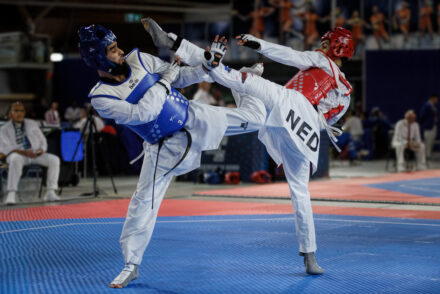How the Dutch intelligence agency handles critical scientists
Bart van der Sloot, assistant professor at Tilburg Law School, received an unlikely phone call from the Dutch intelligence agency last week. They wanted to talk to him, in order to ‘clear up’ a few misunderstandings.
Van der Sloot, an expert on privacy and big data, had appeared on a Dutch television program to talk about data collection a few days prior to the strange phone call. Suddenly, his phone started ringing. “I was called repeatedly by a hidden number. I figured that it had to be urgent, so I picked up.”
On the other side of the line was the General Intelligence and Security Service (AIVD). Van der Sloot was surprised by their call, and even more surprised by why they called. During his appearance on the television program, Van der Sloot had made a passing comment about data collection by intelligence agencies. “They told me that I had given ‘a wrong impression’ of the way the AIVD operates, and that it was ‘in everyone’s best interest’ that I’d clear up the misunderstandings I had caused. It was very strange, and very uncomfortable.”
‘We’re watching you’
When Van der Sloot finds out that he isn’t the only scientist who received a strange phone call from the AIVD after voicing criticism, he decides to write an opinion piece about it in Dutch newspaper De Volkskrant. “After bringing the matter to the attention of my colleagues, I discovered that many of them have had similar experiences. Apparently, this is something that happens more often.”
Van der Sloot felt somewhat intimidated by the call, he writes in the opinion piece. He explains that, rather than making arrests or collecting evidence, intelligence services aim to disrupt networks and operations. “Sometimes, intelligence agents deliberately make themselves visible to let groups know they are being followed and monitored. By calling up scientists, they send a similar signal: we know who you are, we’re watching you.”
Nutty professors
Van der Sloot points out that the Dutch intelligence agency recently received extra funding to cope with its lack of money and manpower in the fight against international terrorism. Strangely, there is room in the budget to put pressure on critical scientists. But if the national intelligence agency ‘goes to the length of using its resources to keep critical scientists in check’, Van der Sloot writes, it could at least do so in a more professional manner.
The sharp opinion piece penned by Bart van der Sloot ends with an ironic suggestion: “Perhaps it would also be good if the new cabinet increases the AIVD’s budget even further, so that, in the future, it can not only monitor terrorists effectively, but nutty professors and other high-threat individuals as well.”
Actual conversation
So did Van der Sloot receive another strange call from the AIVD after the newspaper was printed? “No, they didn’t call again”, Van der Sloot says. But, he adds, the AIVD is welcome to contact him if they want to have an actual conversation. “I think that would be very interesting. I would be more than happy to have an open discussion with them, as long as that’s what it is: an open discussion.”





